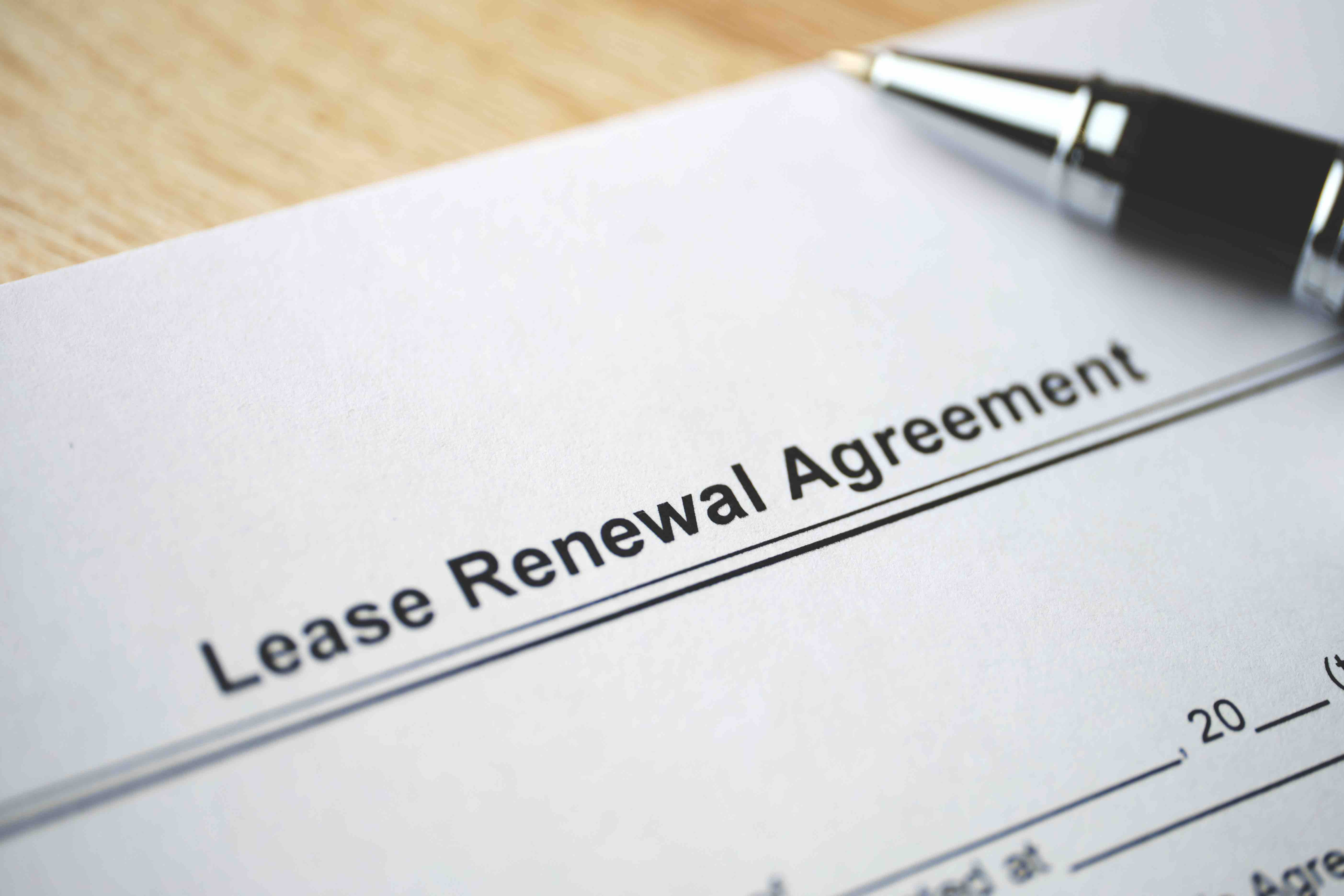
Is your landlord proposing a rent increase that you believe is unjustified? Fear not! With the right strategy, knowledge, and negotiation skills, you can secure the best possible deal during your lease renewal. In this blog post, we will guide you through the process of understanding rent increase factors, preparing to negotiate rent increase, demonstrating your value as a tenant, employing effective negotiation techniques, exploring alternative solutions, and handling rejection. Let’s dive in and empower you to take control of your rental future.
Key Takeaways
- Understand rent increase factors, such as market trends and local housing laws, to inform negotiations.
- Prepare for lease renewal by researching comparable apartments and understanding the local rental market conditions.
- Demonstrate value as a tenant through timely rent payments, low maintenance requests, and positive relationships with neighbors.
Suggested Posts:
Rent Increase Letter: A Landlord’s Guide [Free Template]
Lease Renewal Letter: Crafting the Perfect Letter to Tenants
Rent Late Fees: A Guide for Landlords and Tenants
Understanding Rent Increase Factors
Before you can effectively negotiate your rent increase, it’s crucial to understand the factors that influence it. Market trends, landlord expenses, and local housing laws all play a role in shaping rent prices. By having a grasp of these factors, you can better position yourself as a well-informed tenant and increase your chances of securing a favorable deal.
Let’s dig deeper into each of these factors. Market trends can be a major factor in rent prices, especially if the area is experiencing a population boom.
Market trends
Market trends refer to fluctuations in supply and demand for rental units in an area. When demand is high, landlords may raise rent prices to capitalize on the increased interest. Conversely, if demand is low, tenants may have more negotiating power as landlords may be more willing to offer lower prices to fill vacant units. By researching market trends, you can gain valuable insight into how rent prices in your area are affected by these fluctuations.
Gaining insight into market trends requires some legwork on your part. Investigate similar apartments in your neighborhood, familiarize yourself with local housing regulations, and analyze apartment lease agreements to get a sense of the current market. This knowledge can be invaluable when advocating for a lower rent increase during negotiations.
Landlord expenses
Landlord expenses, such as property maintenance, taxes, insurance premiums, and inflationary pressures, can contribute to rent increases. If your landlord’s expenses haven’t increased significantly, you may be able to argue for a lower rent increase. It’s essential to be prepared with this information when entering lease negotiations, as it can help you build a stronger case in your favor.
To effectively use landlord expenses as a negotiation tool, research the costs that your landlord might be facing and how they have changed over time. This will allow you to present a well-informed argument during negotiations and potentially persuade your landlord to agree to a smaller increase.
Local housing laws
Local housing laws can have a significant impact on rent increases. Some cities, like New York, have rent stabilization policies that protect tenants from unreasonable price increases. By being aware of these regulations, you can ensure your landlord is adhering to the law and not trying to exploit your lack of knowledge.
It’s essential to research the local housing laws in your area before entering negotiations. This will help you understand any restrictions on rent increases and give you more leverage during the negotiation process. Don’t be afraid to bring up these laws in your discussions with your landlord – being informed about the legalities surrounding rent increases can greatly strengthen your position.
Preparing for Lease Renewal Negotiation

Armed with knowledge about rent increase factors, it’s time to prepare for lease renewal negotiations. This preparation includes researching comparable apartments, understanding local rental market conditions, and reviewing your lease terms. By being well-prepared, you’ll be in a stronger position to negotiate a favorable outcome.
Let’s explore each of these aspects in more detail.
Researching comparable apartments
One of the most effective ways to make a case for a lower rent increase is to research comparable apartments in your area. By gathering data on similar units, you can demonstrate to your landlord that your requested rent increase is in line with current market conditions. To find comparable apartments, utilize online resources such as Rentometer and ApartmentSearch’s advanced filters.
Additionally, talk to other tenants in your building and scour rental listings to gain a more comprehensive understanding of the local market. This knowledge will not only strengthen your argument during negotiations, but also help you make a more informed decision about whether to accept the proposed rent increase or look for a new apartment.
Understanding local rental market conditions
Understanding local rental market conditions is crucial in setting a fair rent for your property and knowing what is reasonable to pay or receive during rent negotiations. To gain a deeper understanding of your local rental market, research comparable properties in the area, browse rental listings, and talk to other tenants.
By understanding the local rental market, you’ll be better equipped to negotiate a fair rent increase that reflects current market conditions. This understanding can also help you decide whether it’s worth accepting the proposed rent increase or if it’s time to search for a new apartment.
Reviewing lease terms
Before entering negotiations, it’s essential to review your existing lease terms to understand the obligations and rights associated with the agreement. This review will help you identify any potential issues or restrictions that may arise during negotiations and provide a solid foundation for your negotiation strategy.
When reviewing your lease terms, pay close attention to details such as the termination date, notice requirements, and any specific clauses that may impact your negotiation. By being well-versed in your lease terms, you can approach the negotiation process with confidence and ensure that you’re advocating for the best possible outcome.
Demonstrating Your Value as a Tenant

Now that you’re prepared for lease renewal negotiations, it’s time to demonstrate your value as a tenant. Landlords are more likely to negotiate favorable terms with tenants they consider valuable and reliable. This includes timely rent payments, low maintenance requests, and positive relationships with neighbors.
Let’s examine each of these factors in more detail.
Timely rent payments
Paying rent on time is crucial in demonstrating to your landlord that you’re a responsible and dependable tenant. Landlords may be more willing to negotiate rent increases with tenants who consistently pay rent on time, as it indicates a lower risk of future payment issues.
To ensure timely rent payments, consider setting up automatic payments from your bank account or credit card, or set reminders for yourself to avoid forgetting.
Low maintenance requests
Tenants with few maintenance requests are often seen as low-cost and low-hassle for landlords, as they result in lower maintenance costs. By keeping your maintenance requests to a minimum, you can demonstrate to your landlord that you take care of the property and do not require frequent repairs or maintenance.
This factor can make you more appealing during negotiations and may result in a more favorable outcome.
Positive relationships with neighbors
Fostering positive relationships with your neighbors can show your landlord that you are a good tenant who contributes to a harmonious living environment. A tenant who gets along well with their neighbors is more likely to be seen as an asset to the building, and landlords may be more willing to negotiate rent increases with such tenants.
To maintain positive relationships with neighbors, introduce yourself, display friendly and courteous behavior, and respect their privacy.
Effective Negotiation Techniques
With a strong foundation of knowledge and a demonstration of your value as a tenant, it’s time to employ effective negotiation techniques. These techniques include politeness and professionalism, having well-prepared arguments, and being open to compromise and flexibility.
Let’s explore each of these techniques further.
Politeness and professionalism
Maintaining politeness and professionalism during negotiations is essential for fostering a positive relationship with your landlord. By treating the negotiation process as a business transaction and remaining courteous, you can create an atmosphere of trust and understanding.
This approach can help ensure that the negotiation is conducted in a respectful and productive manner.
Well-prepared arguments
Having well-prepared arguments can enable you to effectively advocate for a lower rent increase. Use the research you’ve conducted on comparable apartments, market trends, and local rental conditions to build a strong case for your desired rent increase.
Remember that being knowledgeable and prepared will give you an edge in the negotiation process.
Compromise and flexibility
Being willing to compromise and demonstrate flexibility can lead to mutually beneficial outcomes for both you and your landlord. Approach the negotiation with an open mind and be prepared to adjust your position if necessary.
By being open to suggestions and finding common ground, you increase the likelihood of reaching a successful outcome.
Alternative Solutions to Rent Increases

If you’re unable to reach an agreement on the proposed rent increase, there are alternative solutions to consider. These alternatives include property upgrades, longer lease terms, and negotiating other lease terms.
Let’s take a closer look at each of these options.
Property upgrades
One alternative solution to rent increases is to negotiate for property upgrades in exchange for accepting the rent spike. For example, you might agree to a $100 rent increase instead of $150 if your landlord agrees to renovate your bathroom. This approach can result in a win-win situation for both you and your landlord, as you receive a valuable upgrade while your landlord secures a higher rent.
Negotiating for property upgrades can be a great way to get more value out of your property.
Longer lease terms
Longer lease terms can help you lock in a lower rent rate and avoid frequent negotiations. By committing to a longer lease, you provide your landlord with the security of a guaranteed rental income for an extended period, which may make them more willing to negotiate a lower rent increase.
However, keep in mind that not all landlords may be open to offering a two year lease or longer lease terms.
Negotiating other lease terms
Another alternative solution is to engage in lease negotiation, focusing on other terms such as pet policies, parking arrangements, or security deposit. While these adjustments may not directly impact your rent, they can provide additional benefits and make your living situation more comfortable.
When negotiating these terms, be sure to focus on the value they provide rather than the cost, and consider the long-term advantages of these changes.
Handling Rejection and Moving Forward

If your landlord refuses to negotiate or you’re unable to reach a mutually satisfactory agreement, it’s important to know how to handle rejection and move forward. This may involve searching for a new apartment, considering legal advice, and learning from the experience.
Let’s explore each of these steps in more detail.
Searching for a new apartment
If your landlord is unwilling to negotiate, you may need to begin the search for a new apartment that meets your needs and budget. When searching for a new apartment, be mindful of the condition of the common areas, the office staff’s interaction with current tenants, and the terms and conditions of the lease agreement.
By being thorough in your search, you can find a new living situation that better suits your needs and preferences.
Considering legal advice
If you believe your landlord is not following local housing laws or is treating you unfairly, you may consider seeking legal advice. A lawyer or legal advisor can provide you with a professional opinion on the law and its application to your specific situation, ensuring your rights and interests are protected.
Be sure to select a lawyer or legal consultant who is knowledgeable in the relevant legal field and familiar with the local statutes and regulations.
Learning from the experience
Regardless of the outcome of your negotiations, it’s important to learn from the experience and use this knowledge to improve your negotiation skills for future lease renewals. Reflect on the strategies you used, the information you gathered, and the approach you took during negotiations.
By applying these lessons moving forward, you’ll be better equipped to navigate future rent increase negotiations and secure the best possible deal for yourself.
Summary
In conclusion, successfully negotiating a rent increase requires a combination of knowledge, preparation, and effective negotiation techniques. By understanding rent increase factors, demonstrating your value as a tenant, employing effective negotiation strategies, and considering alternative solutions, you can improve your chances of securing a favorable lease renewal. Remember that negotiation is a skill that can be honed over time, so don’t be discouraged if you don’t achieve your desired outcome on your first try. Keep learning, adapting, and striving for the best possible outcome in your rental future. Happy negotiating!
Frequently Asked Questions
What is the most a landlord can increase rent?
Landlords in the U.S. are free to increase rent by any amount, as long as they provide their tenants with sufficient notice (usually 30 days). Therefore, there is no federal limit on how much rent can be increased in any given year.
Is it OK to haggle about rent?
It is OK to haggle about rent; many landlords are receptive to negotiations. Even if you’re a first-time renter, you can ask for what you need and potentially get a lower rental rate.
Asking for a lower rent may help you cover your expenses if you are struggling financially.
How do I fight rent increase in NYC?
To fight a rent increase in NYC, you can try to negotiate with your landlord by asking for an explanation, staying calm and polite, reminding them of your good tenancy, and offering a compromise.
If negotiation doesn’t work out, it’s best to keep your options open.
What factors influence rent increases?
Rent increases are influenced by market trends, landlord expenses, and local housing laws.
These factors can cause rents to rise or fall, depending on the current market conditions. For example, if the demand for rental housing is high, landlords may increase their rents.
How can I demonstrate my value as a tenant during negotiations?
Timely rent payments, low maintenance requests, and positive relationships with neighbors can demonstrate your value as a tenant during negotiations.
This can be a great way to show your landlord that you are a reliable and responsible tenant, and can help you get a better deal when it comes time to negotiate.
Upgrade Your Building Security
Get in touch with a Swiftlane specialist for more information on the best access control and video intercom solution for your building.




